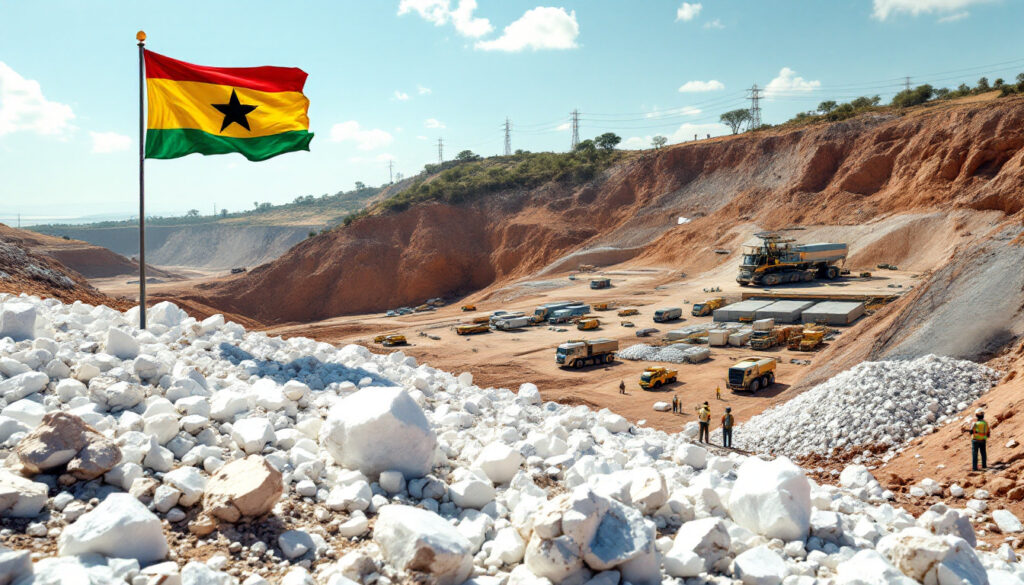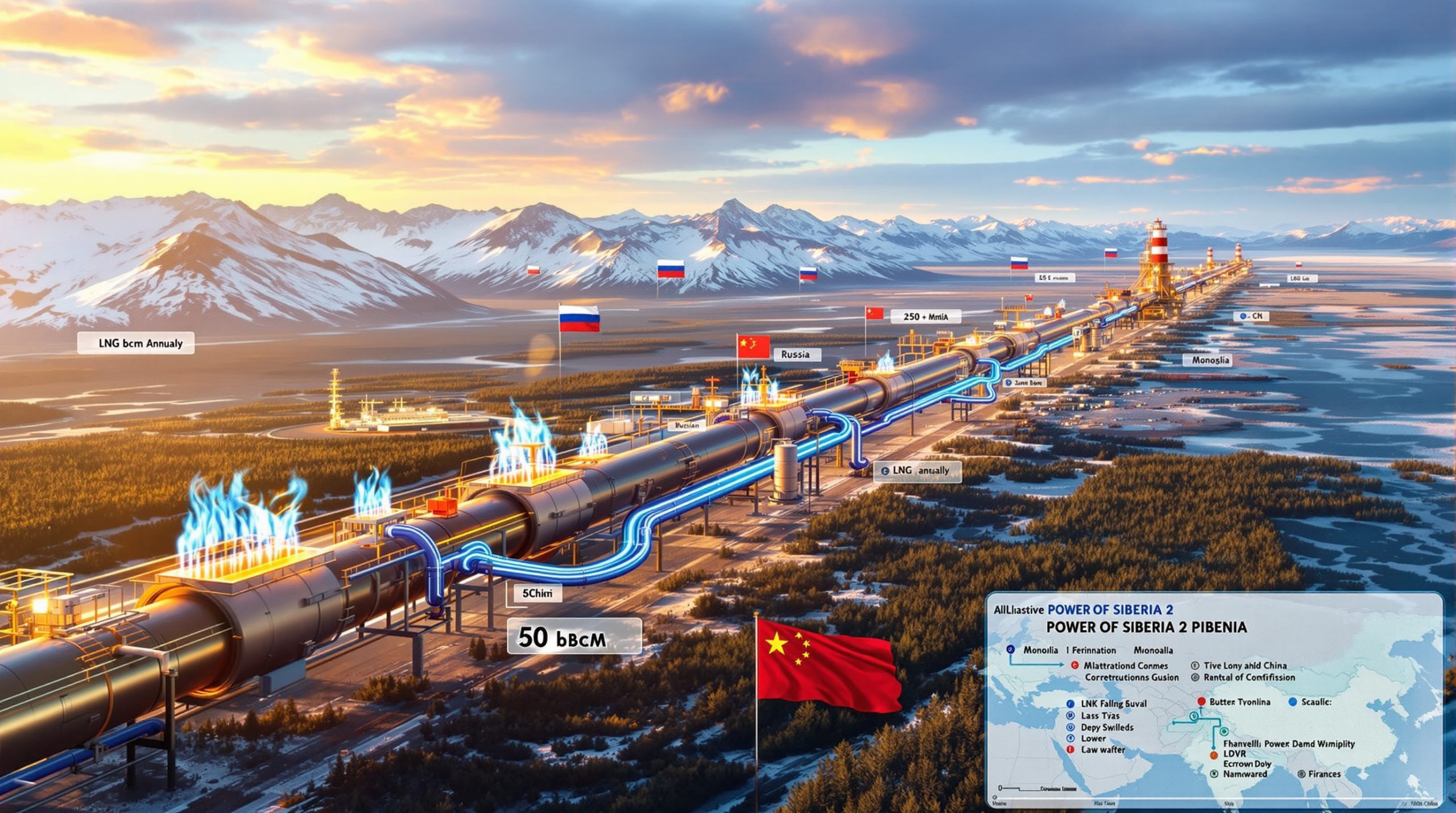Atlantic Lithium and Ghana: Renegotiating Terms for the Ewoyaa Lithium Project
Ghana's ambitious plans to establish itself as a key player in the global lithium supply chain are facing a critical juncture as Atlantic Lithium seeks to renegotiate fiscal terms for its flagship Ewoyaa Lithium Project. With lithium prices having plummeted by more than 80% since their 2022 peak, the project's economic viability hangs in the balance, necessitating a collaborative approach between the company and government authorities.
The negotiations represent a pivotal moment not only for Atlantic Lithium but for Ghana's broader strategy to participate in the battery minerals sector. As both parties work toward a resolution, the outcome will likely set precedents for future critical mineral developments in the country and potentially influence resource governance approaches across West Africa.
What is the Ewoyaa Lithium Project?
The Ewoyaa Lithium Project is strategically located in Ghana's Central Region, approximately 100km southwest of Accra. The project benefits from exceptional infrastructure advantages, including proximity to a major highway, accessible power grid, and just 110km from the deep-sea port of Takoradi—infrastructure elements that significantly reduce capital requirements compared to more remote lithium developments.
According to the definitive feasibility study (DFS) completed in June 2023, Ewoyaa holds mineral reserves of 25.6 million tonnes at 1.22% lithium oxide. The project is projected to produce 3.6 million tonnes of spodumene concentrate over a 12-year mine life, with concentrate grades reaching approximately 6%—meeting specifications required for electric vehicle battery production.
"The Ewoyaa project represents a prime opportunity to establish Ghana as a significant contributor to the global battery minerals supply chain," noted Neil Herbert, Executive Chairman of Atlantic Lithium. "The excellent existing infrastructure provides exceptional advantages that few lithium projects worldwide can match."
After securing its mining feasibility insights mining operating permit in October 2024, the project has entered the pre-construction phase, with all final regulatory approvals now in place. Atlantic Lithium has emphasized its partnership approach with both the Ghanaian government and local communities, integrating community development initiatives into project planning from the outset.
Why are Atlantic Lithium and Ghana Renegotiating Terms?
The urgent need for fiscal renegotiation stems primarily from the dramatic collapse in global lithium prices. From their 2022 peak of approximately $80,000 per tonne, lithium carbonate prices have fallen to around $15,000 per tonne—a decline that has fundamentally altered the economics of lithium projects worldwide.
This market downturn has been driven by a combination of factors, including accelerated production from Australian spodumene operations, slower-than-anticipated electric vehicle adoption in certain markets, and substantial new lithium capacity coming online in recent years. The result has been a supply glut that market analysts suggest could persist through 2026.
Against this challenging backdrop, Ghana's existing fiscal framework for lithium presents additional hurdles. The current terms include a mandatory 10% state free carried interest as established under Ghana's mining laws, plus a special 13% royalty specifically applied to lithium production revenue—significantly higher than the global average for critical minerals.
"This combined fiscal burden threatens the very viability of the project in the current price environment," explained Ahmed-Salim Adam, Atlantic Lithium's General Manager. "The revisions we're discussing are critical for the project's survival, not optional enhancements."
Comparative analysis reveals Ghana's 13% lithium royalty rate substantially exceeds norms in competing jurisdictions like Australia (5%), Chile (variable 6-8%), and Argentina (3%). Even within Africa, countries like Zimbabwe have moved toward flexible royalty structures (1-5% sliding scale) to attract investment during the market downturn.
What Changes are Being Proposed?
The renegotiation discussions center on creating a more balanced fiscal framework that acknowledges current market realities while ensuring Ghana captures appropriate value from its mineral resources. While specific proposals remain confidential during negotiations, industry sources suggest several potential adjustments are under consideration.
Key among these is a potential reduction of the special 13% lithium royalty to a more globally competitive rate, possibly in the 6-8% range. Such an adjustment would align more closely with international norms while still providing Ghana with substantial revenue when production commences.
Additional proposals may include modifications to the state participation structure, potentially converting some portion of the free carried interest to a paid equity stake. This approach would reduce upfront financial pressure on the project while maintaining Ghana's position as a significant stakeholder in the operation's long-term success.
Financial modeling indicates that reducing the royalty rate to 8% could lower the project's breakeven price to approximately $12,000 per tonne of lithium carbonate equivalent, enhancing resilience against market volatility and improving prospects for securing project financing.
Ghana's Ministry of Lands and Natural Resources has signaled openness to discussions, recognizing that an idle project generates no revenue or socioeconomic benefits. "We remain committed to ensuring Ghana's lithium resources create lasting value for our citizens," stated a ministry representative. "This requires frameworks that work for both the nation and investors in all market conditions."
How Does the Ewoyaa Project Compare to Other Lithium Developments?
The Ewoyaa project possesses several distinct advantages when compared to lithium developments globally, particularly its metallurgical characteristics and infrastructure position. The project's spodumene mineralization is amenable to conventional processing techniques, avoiding the technical complexities and higher processing costs associated with clay-hosted or brine lithium resources.
Atlantic Lithium's DFS confirms the technical viability of producing a high-quality spodumene concentrate grading approximately 6% lithium oxide, suitable for conversion to battery-grade lithium chemicals. Recovery rates exceed 75%, comparing favorably with peer operations.
From a capital intensity perspective, Ewoyaa's estimated development cost of $125 million is approximately 20% lower than comparable projects, primarily due to the existing infrastructure. This represents a capital intensity of approximately $3,500 per tonne of annual production capacity—significantly below the industry average of $5,000-6,000 per tonne.
"The project's modest capital requirements and projected operating costs in the lower half of the global cost curve position Ewoyaa to weather market volatility better than many competing developments," noted mining analyst James Henderson of Global Resource Capital. "However, fiscal terms remain the critical variable."
Upon reaching production, Ewoyaa would stand as the flagship lithium operation in West Africa, providing Ghana with a foothold in the battery minerals value chain. The project's concentrate would likely supply conversion facilities in Asia initially, though Ghana has expressed interest in eventually developing downstream processing capabilities domestically.
What are the Implications for Ghana's Mining Sector?
The outcome of Ewoyaa negotiations carries significant implications that extend far beyond this single project. As Ghana's first major lithium development, the terms established will inevitably set precedents for future critical minerals projects in the country.
Industry observers note that the government's approach to these discussions will send important signals to international investors about Ghana's flexibility and pragmatism in resource governance. With competition for mining investment intensifying across Africa, countries demonstrating adaptability to market conditions typically secure greater investment flows.
"Ghana must balance legitimate revenue expectations with the reality that uncompetitive fiscal terms simply result in stranded assets," explained Dr. Kwame Asante of the Ghana Chamber of Mines. "A fair agreement on Ewoyaa creates a template for responsible development of the country's critical minerals endowment."
The economic impact potential remains substantial despite current market challenges. At full production, Ewoyaa would directly employ approximately 500 Ghanaians in high-quality jobs, with thousands more positions created through multiplier effects. Local procurement opportunities would exceed $25 million annually, while community development funds would provide approximately $2 million per year for infrastructure, education, and healthcare initiatives in project-adjacent communities.
Foreign direct investment would also receive a significant boost, with the project potentially attracting over $125 million in initial capital expenditure plus ongoing operational investments. This would strengthen Ghana's position as West Africa's premier mining investment destination.
What's Next for the Ewoyaa Project?
The timeline for Ewoyaa's development hinges entirely on the outcome of ongoing negotiations with government authorities. Atlantic Lithium has indicated that construction could begin as early as Q1 2026 if revised terms are finalized by Q4 2025, with first production targeted for late 2027.
However, this schedule remains contingent on establishing fiscal terms that reflect current market realities and securing project financing—a challenge for all lithium developers in the current environment. The company continues to engage with potential offtake partners, including major electric vehicle manufacturers and battery producers, to secure pre-production financing arrangements.
Market recovery will also play a crucial role in determining the project's advancement. While lithium prices have stabilized in recent months, consensus forecasts suggest a gradual recovery beginning in late 2025 as supply and demand fundamentals rebalance. Analysts from CRU Group project lithium carbonate prices could reach $25,000 per tonne by 2028, driven by accelerating electric vehicle adoption globally.
Key success factors for the project include:
- Achieving a collaborative resolution of fiscal terms that balances government revenue with project economics
- Securing binding offtake agreements with creditworthy counterparties
- Successfully navigating community relations and environmental commitments
- Effectively managing construction costs and schedule
- Timing market entry to coincide with stronger lithium prices
"We remain fully committed to developing Ewoyaa as a model operation that delivers lasting benefits for Ghana while providing the critical minerals needed for global energy transition," affirmed Herbert. "Our approach remains one of partnership with government, communities, and all stakeholders."
These negotiations take place against the backdrop of Australia's lithium ambitions and broader efforts toward revolutionizing lithium production worldwide. The current global lithium market outlook presents challenges for all industry participants, with market experts from Atlantic Lithium's corporate site noting that strategic partnerships will be essential for navigating the volatile pricing environment.
FAQs About the Atlantic Lithium-Ghana Negotiations
How do Ghana's lithium royalty rates compare to other jurisdictions?
Ghana's current 13% special royalty for lithium significantly exceeds global norms. Australia applies a 5% ad valorem royalty, while Chile uses a variable structure of 6-8% depending on production volumes. African competitors like Zimbabwe have adopted sliding scale models (1-5%) that adjust with market prices. This disparity places Ghana at a competitive disadvantage in attracting lithium investment, particularly during market downturns.
What impact would project delays have on Ghana's mineral development strategy?
Delays to Ewoyaa could significantly impede Ghana's ambitions in the battery minerals sector. Competing projects like Mali's Goulamina and Ivory Coast's Birimian lithium developments would likely capture market share and establish regional leadership. Additionally, prolonged negotiations might signal regulatory uncertainty to investors considering other critical minerals opportunities in Ghana, potentially diverting capital to more fiscally competitive jurisdictions.
How might changes to the fiscal terms affect local communities?
Revised terms enabling project development would unlock substantial community benefits, including approximately $2 million annually in community development funds as outlined in draft agreements. These resources would support infrastructure improvements, educational initiatives, and healthcare facilities in project-affected communities. Conversely, if fiscal terms remain unchanged and the project stalls, these benefits would never materialize, depriving local communities of development opportunities and employment prospects.
In the broader context, these negotiations highlight key considerations in the global commodities market insights arena, where political dynamics significantly influence investment opportunities in critical minerals.
Interested in Tracking the Next Major Lithium Discovery?
Discovery Alert's proprietary Discovery IQ model delivers instant notifications on significant ASX mineral discoveries, helping you stay ahead of market movements in critical minerals like lithium. Explore historic examples of exceptional returns from major discoveries by visiting Discovery Alert's dedicated discoveries page.




